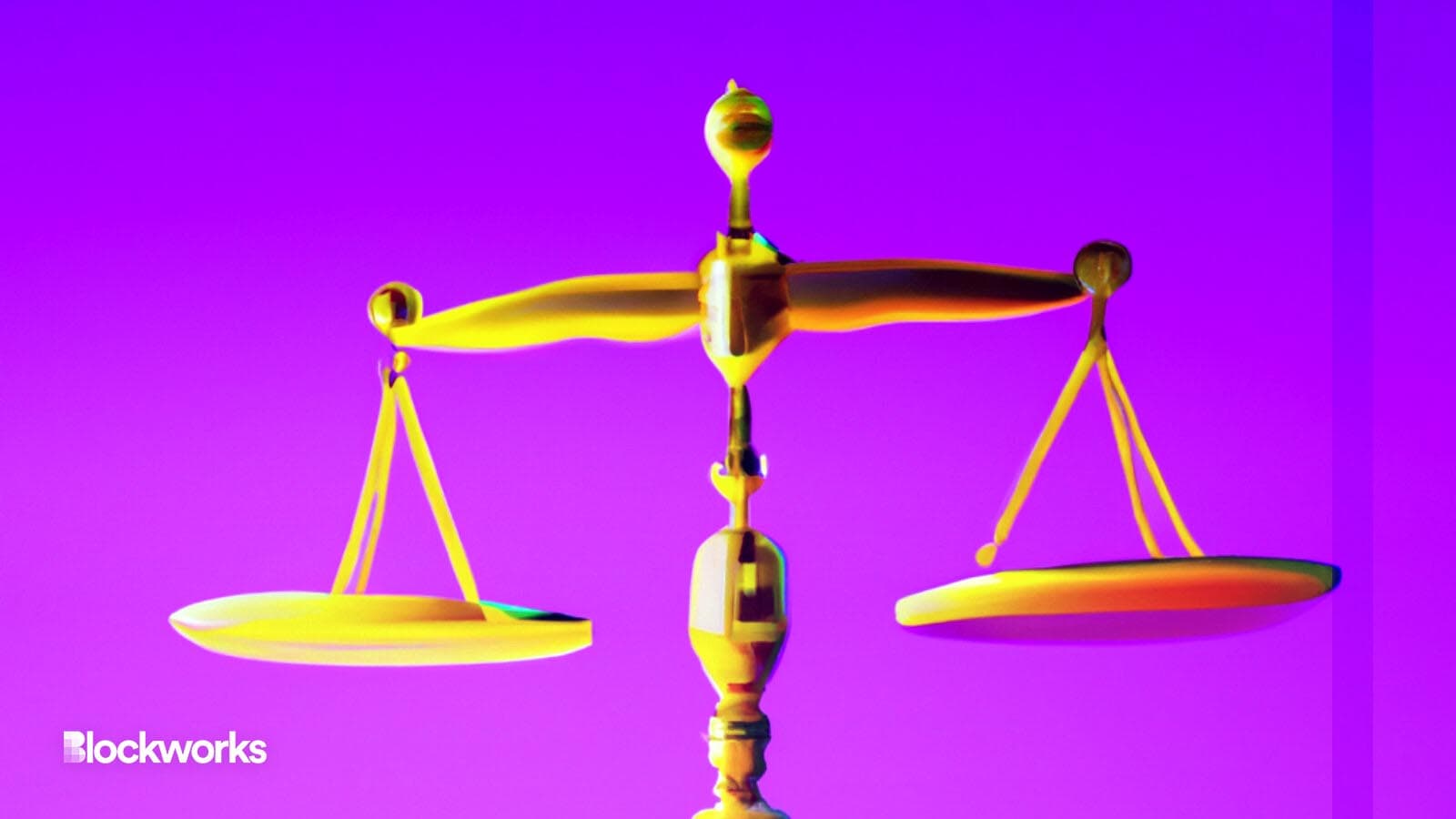‘BitBoy’ Ben Armstrong Faces Legal Action From FTX Class Action Lawyers
Ben ‘BitBoy’ Armstrong is alleged to have used emails, phone calls and social media to send ‘daily violent threats’ to an attorney in the FTX class action lawsuit

Dall-e modified by Blockworks
Courts formally served Ben ‘BitBoy’ Armstrong on April 5, due to his alleged harassment of attorneys involved in the FTX class action lawsuit. The case had previously named Armstrong as one of eight influencers who promoted FTX without “the nature and scope of their sponsorships and/or endorsement deals, payments and compensation, nor conduct adequate (if any) due diligence.”
In the weeks since the suit was filed back in March, Armstrong has allegedly been in contact with the lawyer representing the plaintiffs, Adam Moskowitz, through emails, social media and phone calls.
The attorneys originally filed a complaint against Armstrong in March, alleging that he had “left voicemails” that targeted the counsel, including one to Moskowitz claiming, “We’re going to have First Amendment protesters around your house 24/7 day and night.”
According to the most recent filing, the lawyers were unable to serve Armstrong until April 5. Lawyers involved with the case requested a hearing with the court to address the “serious matters of Armstrong’s conduct to date.”
In the filing, the lawyers wrote, “plaintiffs respectfully suggest that any Court cannot condone or allow such inappropriate, bullying, unprofessional and, frankly, terrorizing conduct, specifically in a time where social media reaches millions of people and which involves direct threats on officers of the court and their families.”
In response to being served, Armstrong claims that he asked the process server to deliver a message to Moskowitz that he’s “going to bury” the lawyers. He concluded the message with a threat, saying “You’re going to pay, buddy.”
Armstrong had previously tweeted about Moskowitz, calling him “a walking piece of human garbage.”
The lawyers are also requesting a hearing in another class action lawsuit that has named Armstrong as a defendant. The second lawsuit alleged that Binance CEO Changpeng Zhao and social media influencers – including Armstrong – promoted, “assisted in and/or actively participated in Binance’s offer and sale of unregistered securities.”
In the Zhao case, however, the court has not yet responded to the harassment claims against Armstrong.
Last August, Armstrong sued YouTuber Atozy – whose real name is Erling Mengshoel – alleging that Mengshoel damaged business relations and hurt his reputation after the release of a video in 2021 claiming that Armstrong promoted scams. Armstrong dropped the suit after it became public.
Update: April 6, 2023 at 7:28pm ET. Updated to clarify that Armstrong did not post the video to YouTube himself, he claims in a tweet to have asked the process server to record it and deliver to the attorneys.
Get the news in your inbox. Explore Blockworks newsletters:
- The Breakdown: Decoding crypto and the markets. Daily.
- 0xResearch: Alpha in your inbox. Think like an analyst.






